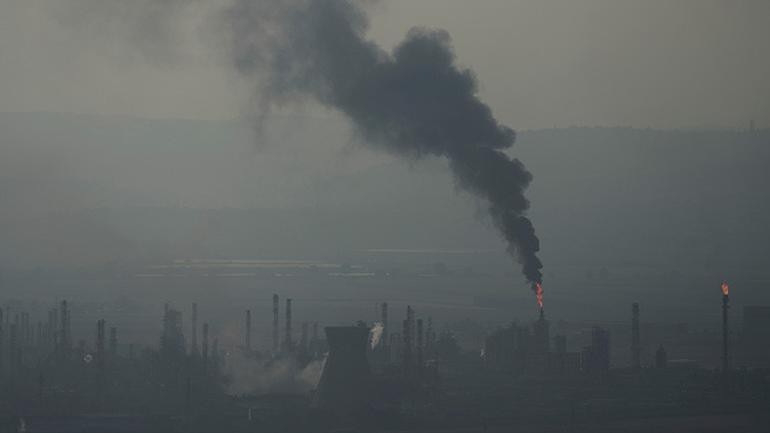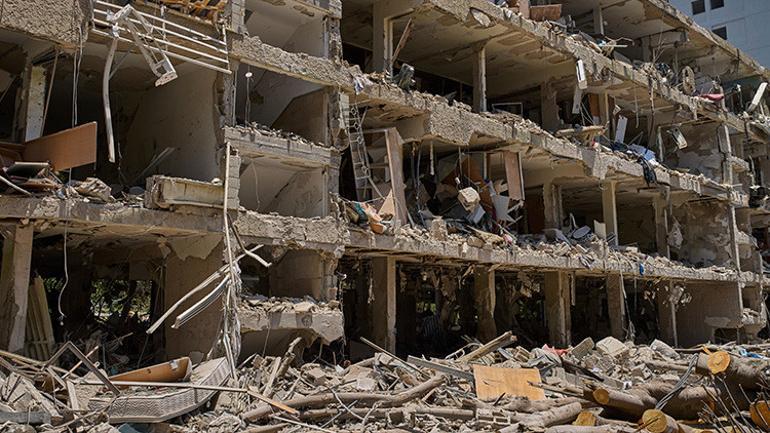Pinpoint shot from Iran to the heart of the Israeli economy! Minimum spending, maximum impact

NEWS CENTER
Creation Date: July 03, 2025 18:52
Iran responded to Israel’s attacks launched on June 13 with targeted missile strikes. Targeting the foundation of Israel’s power, Iran struck the stock exchange building in Tel Aviv in its operation against its economic and financial infrastructure.
Iran has targeted with missiles the home of Dani Naveh, CEO of the Israel Development Corporation and architect of the country's global bond sales operation.
In the article published in Middle East Eye (MEE), it was stated that with Naveh’s economic initiatives, Israel has collected over $5 billion in bonds, $1.7 billion of which came from US institutions, since October 2023. These bonds have become a lifeline for Israel.
According to the article written by political economist Ahmed Alqarout, by eliminating Naveh, Tehran wanted to destroy investor confidence, the weakest point of Israel’s debt mechanism. However, Naveh managed to survive at the last minute, despite his house being destroyed in the Iranian attack.
This is a close-up video of the #Israel Stock Exchange building in #TelAviv after it was hit by #Iranian ballistic missiles launched by the #IRGC Aerospace Force. #OperationTruePromise3 #OperationRisingLion pic.twitter.com/AlmvInsiRi
— Babak Taghvaee - The Crisis Watch (@BabakTaghvaee1) June 19, 2025
Stock exchange building damaged in Iran's attack
In addition to striking Tel Aviv’s financial district, Iran has also targeted Haifa’s port and refinery infrastructure with missiles, while Tehran has also launched cyber warfare to try to disable a refinery that is critical to both industrial and civilian energy supplies.
Although Iran’s attacks appeared to be mere missile launches, they aimed to destabilize the financial and logistical foundations of Israel’s war economy.
The Israeli economy, which has fallen into a difficult situation due to increasing war spending, has also had to struggle with the increasing costs in logistics and production chains along with the attacks carried out by Iran.

Iranian missiles hit Israeli port city of Haifa
MARITIME DISRUPTION HAS BEEN A STRIKE
The biggest blow to the Israeli economy came from the global shipping industry. On June 20, Maersk, the world's largest container shipping company, announced that it was suspending all shipping to the Port of Haifa, Israel.
The decision, taken as a result of the Iranian missile strikes, isolated the Israeli market. Insurance premiums for shipments to Israel exceeded 1 percent of the value of the ships, effectively embargoing Israel's maritime economy.
The disruption, which led Maersk to abandon Israel’s gateway to the Mediterranean, has overshadowed the Houthi crisis in the Red Sea, where import costs have soared and stocks have widened.

Smoke rises from an oil refinery in Haifa after Iranian missiles hit it
Maersk confirmed that they will resume shipping to the Port of Haifa following US President Donald Trump's announcement of the ceasefire.
MINIMUM EXPENDITURE MAXIMUM IMPACT
Iran, on the other hand, made minimum expenditure and achieved maximum effect, with the missile cost estimated between $ 2 billion and $3 billion.
Using psychological deterrence as a weapon, Tehran has achieved what years of sanctions have failed to achieve. Iran has shown how the Israeli economy can become unstable, vulnerable and unsustainable.
In Israel, where confidence in the Netanyahu government's economic policies has been shaken, for the first time an appeal was made for aid, not arms but cash. Tel Aviv's official request for economic aid was interpreted as an admission of economic fatigue.

A building damaged after a missile attack from Iran on Tel Aviv
WHAT IS THE USA'S PLAN?
US President Donald Trump was aware that Israel could not afford a prolonged war. Trump is now trying to re-establish his dominance in the Middle East through diplomacy and economic power. After the ceasefire, the US adopted an approach aimed at preventing Iran from making further gains.
The US strategy is based on economic encirclement and institutional containment rather than military pressure. It aims to weaken Iran ’s power through specific troop and financial restrictions rather than direct confrontation. This approach focuses on “managing” rather than solving existing problems.
hurriyet





